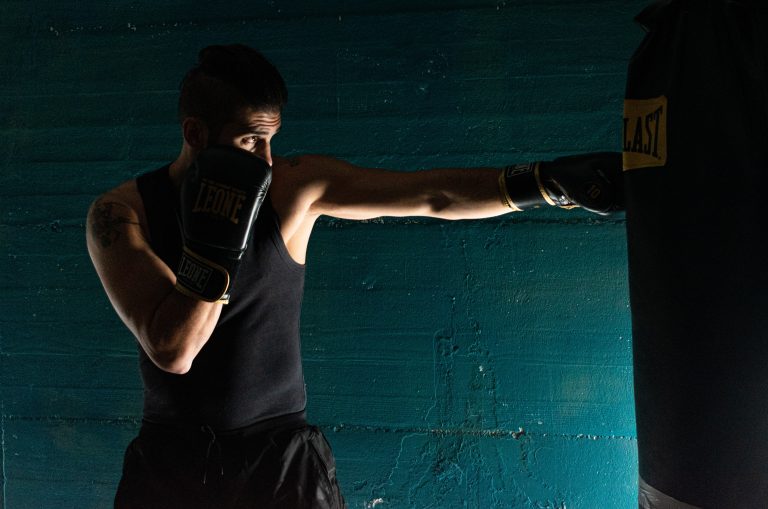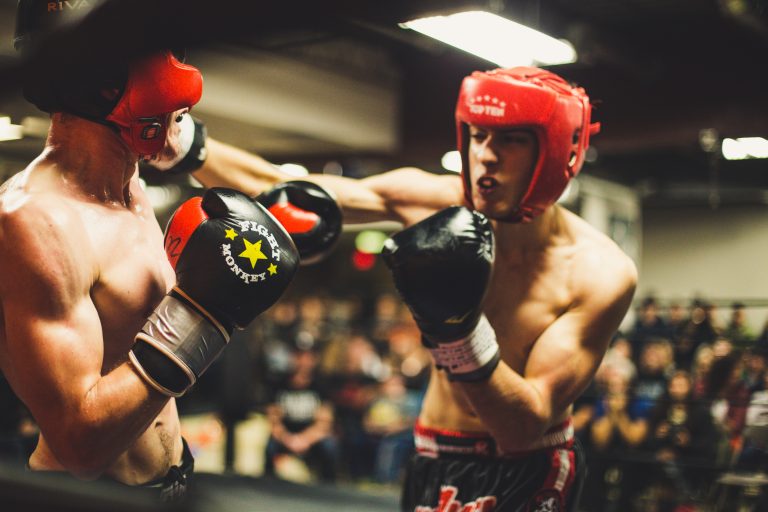The Purpose of Learning Karate and Its Benefits
Learning karate is not just about breaking boards and winning tournaments. It is a martial art that can do wonders for both your physical and mental health. Whether you are a child or an adult, karate can improve your overall well-being in many ways. In this article, we will discuss the purpose of learning karate and its benefits in detail.
Overview of Karate
Karate is a Japanese martial art that originated in Okinawa, Japan. It was developed in the Ryukyu Islands by combining native Okinawan martial arts with Chinese fighting styles. The word karate means „empty hand“ which signifies its unarmed nature.
Karate is not only an effective self-defense system but also a great form of exercise that can provide numerous health benefits. It involves a series of punches, kicks, and strikes, as well as grappling and joint locking techniques.
The Purpose of Learning Karate
Karate has many purposes, and it can be different for each individual. Some people learn karate for self-defense, whereas others do it for physical fitness or as a form of stress relief. Here are some of the major purposes of learning karate:
Self-Defense
Self-defense is one of the primary reasons why people learn karate. It is a practical and effective way to defend oneself against attackers. Karate trains individuals to be aware of their surroundings and teaches them how to react to potentially violent situations quickly.
Learning karate helps individuals to develop their reflexes and timing, which is crucial in self-defense situations. Moreover, karate teaches individuals how to strike vulnerable areas of the attacker’s body while protecting their own.
Physical Fitness
Karate is a great form of exercise that can improve your overall physical fitness. It involves a lot of cardiovascular exercises, such as punching and kicking, which can improve your heart rate and blood flow to your muscles.
Moreover, karate can increase your flexibility, balance, and coordination, making you more agile and graceful in everyday life. It can also help you to develop your muscle strength and endurance, giving you more energy throughout the day.
Stress Relief
Karate is an excellent form of stress relief. It allows individuals to focus their energy and release pent-up emotions in a safe and controlled environment. Karate can also help individuals to develop their self-confidence and improve their self-esteem, which can reduce stress and anxiety.
Learning karate can also be a fun and enjoyable experience. It provides individuals with a sense of achievement and satisfaction when they master a new technique or earn a new belt.
The Benefits of Learning Karate
Apart from the purposes mentioned above, learning karate provides numerous benefits to both physical and mental health. Here are some of the benefits of learning karate:
Improves Cardiovascular Health
Karate involves a lot of physical activity that can improve your cardiovascular health. Cardio exercises increase your heart rate and blood flow throughout your body, strengthening your heart and reducing the risk of heart disease.
Increases Flexibility and Mobility
Karate involves a lot of stretching and warm-up exercises, which can improve your flexibility and mobility. Flexibility can reduce the risk of injuries and increase your range of motion, making you more agile in everyday life.
Increases Muscle Strength and Endurance
Karate involves a lot of resistance training, which can increase your muscle strength and endurance. Stronger muscles can help you perform everyday tasks and reduce the risk of osteoporosis and arthritis.
Improves Mental Health
Karate can improve your mental health by reducing stress and anxiety. It provides a structured and controlled environment to release pent-up emotions and helps you to develop your self-confidence and self-esteem.
Moreover, karate can also improve your focus and concentration. It requires you to focus on drills and techniques, which can improve your mental clarity and focus.
Promotes Discipline and Respect
Karate is a discipline that promotes respect and discipline. It teaches individuals to respect their instructors, their fellow students, and themselves. Karate also instills discipline by requiring individuals to follow rules and protocols in the dojo.
Moreover, karate teaches its students to be patient and persistent. It requires a lot of practice and repetition to master techniques, which can help individuals develop patience and persistence in other areas of their lives.
Frequently Asked Questions About the Purpose of Learning Karate
If you’re considering learning karate, it’s important to understand its purpose beyond just basic self-defense. Sure, learning to fight is a valuable skill, but karate has much more to offer than just physical prowess. In this post, we’ll answer some of the most commonly asked questions about the purpose of learning karate.
What is the main purpose of learning karate?
The main purpose of karate is to develop not only physical skills but also mental and emotional skills. Karate teaches self-discipline, focus, respect, and perseverance by setting goals and working hard to achieve them. It also helps in building confidence and self-esteem.
Is karate useful for self-defense?
Absolutely. One of the primary reasons people learn karate is for self-defense. Karate teaches techniques for defending against attackers, as well as strategies for avoiding dangerous situations. However, it is important to note that physical self-defense should always be a last resort and should only be used in situations where defense against physical harm is necessary.
Can karate help with stress relief?
Yes. Karate involves physical activity, which can help reduce stress and anxiety. Additionally, the mental focus required during karate training can help individuals clear their minds and focus on the present moment, leading to a sense of relaxation and greater mental clarity.
What are some of the benefits of learning karate?
In addition to the mental and emotional benefits mentioned above, karate has several physical benefits, including improved balance, flexibility, coordination, and overall fitness. Additionally, karate can be a great way to meet new people and build a sense of community through training with others who share a common interest.
Is karate suitable for children?
Yes. Karate can be a great activity for children, helping them develop focus, discipline, and self-esteem. It can also be a valuable tool for children who may be dealing with bullying or other social challenges. However, it is important to find a reputable karate school with experienced instructors who are trained to work with children.
Do I need any prior experience to learn karate?
No. Karate can be learned by people of all levels of experience, including those with no prior martial arts training. However, it is important to find a reputable school with qualified instructors who can teach proper techniques and ensure safety during training.
Can karate be practiced at any age?
Yes. Karate can be practiced by people of all ages, from young children to older adults. However, it is important to note that older individuals may need to modify their training to account for any physical limitations.
What is the process of learning karate?
The process of learning karate typically involves training under the guidance of a qualified instructor. Beginners will start with basic techniques and gradually build their skills through regular training and practice. As students progress, they will move on to more advanced techniques and may have the opportunity to earn belts and advance in rank.
A Step-by-Step Guide on How to Learn Karate and Its Purposes
Karate is a popular martial art that originated from Japan. It involves a mixture of punches, kicks, and strikes that help you to defend yourself against attackers. Learning karate can have various purposes, such as improving your physical and mental health, enhancing self-confidence, and boosting your self-defense skills. In this blog post, we’ll provide you with a step-by-step guide on how to learn karate and its purposes.
Step 1: Choose a Dojo
Learning karate requires the proper guidance of a professional and experienced instructor. Therefore, the first step to learning karate is to find a reputable dojo or martial arts gym in your area. Conduct research on the internet, ask friends or family for recommendations, and check out the facilities and instructors before selecting a dojo. Make sure to choose a dojo that’s welcoming, safe, and has experienced instructors and ample space for training.
Step 2: Start with the Basics
When you start learning karate, you’ll begin with the basics, which are the basic moves and techniques. Some of these include footwork, hand positions, and stances, which can be quite challenging for beginners. However, practicing these basics is essential to developing your karate skills. The basics will help you develop the muscle memory and coordination that you’ll need in more advanced techniques. Additionally, make sure to pay attention to your sensei while learning the basics, as they can provide valuable feedback and corrections.
Step 3: Progress to Advanced Techniques
Once you have mastered the basics, you’ll progress to more advanced techniques, such as kicks, punches, and strikes. During this stage, you’ll learn how to combine different techniques, use them in real-life situations, and improve your coordination and timing. Practice these techniques until they become second nature, but always keep safety in mind while training.
Step 4: Train Regularly
Karate requires regular practice and training to improve your skills and maintain progress. Consistency is critical, so try to work out a training schedule that you can stick to. This will help you to stay focused and disciplined, and it will also help you to avoid injury.
Step 5: Practice with a Partner
One of the most important aspects of karate is learning how to spar with a partner. This is the time when you’ll put your skills to the test, practice your timing, and improve your reaction time. Training with a partner will enable you to become more comfortable and confident in your abilities, as well as help you to develop your strategy for countering your opponent’s attacks.
Step 6: Focus on Your Goals
The purpose of learning karate can vary depending on individual goals. For some, it’s a means of self-defense, while for others, it’s a way of improving their physical or mental health. Whatever your goal may be, it’s important to stay focused and motivated throughout your training. Ensure that you’re clear on your objectives and work towards achieving them.
Step 7: Evaluate Your Progress
Karate is a journey that requires continuous improvement and development. Therefore, it’s essential to keep track of your progress regularly. Evaluate your performance and identify areas that need improvement. Celebrate your small successes and work through any obstacles that may hinder your progress. In this way, you can continue to develop and reach your full potential.
Conclusion
Learning karate can be a fulfilling and rewarding journey with both physical and mental benefits. It’s essential to ensure that you select the right dojo or gym that has experienced and professional instructors. By following the steps discussed above, you can learn karate effectively and its purposes. Keep in mind that karate is a journey that requires patience, discipline, and consistency. With practice and dedication, you can achieve your goals and reap the benefits of learning karate.
Inhaltsverzeichnis






